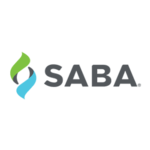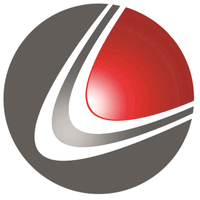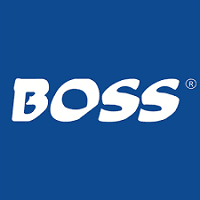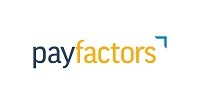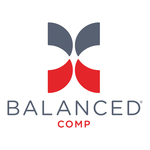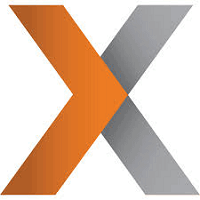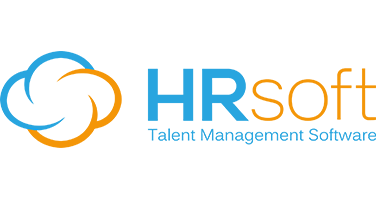What Is Compensation Management Software?
pay management software is an effective tool for firms to streamline their employee pay procedures, from setting salary structures and bonuses to administering employee awards and incentives. It is intended to simplify and automate the complex and time-consuming task of pay management, allowing businesses to attract, retain, and incentivize top talent.
Compensation management software enables firms to ensure fair and consistent compensation policies, decrease administrative errors, and align employee pay with performance and market trends. This program also includes tools like wage benchmarking, performance tracking, and budget planning, which provide vital data for making informed employee compensation decisions.
One of the primary advantages of compensation management software is its ability to centralize and verify data accuracy, hence removing the need for manual spreadsheets or paper-based processes. This not only saves time and effort, but also lowers the likelihood of errors and compliance difficulties. Furthermore, compensation management software provides real-time insight and data, allowing businesses to immediately examine compensation patterns and adapt their strategy accordingly.
It also promotes transparency and fairness, as employees can easily access their compensation information and understand how their pay is calculated. Companies wishing to invest in compensation management software have a variety of options available on the market, ranging from standalone solutions to integrated human resource suites. When selecting software, it is critical to assess its features, customizability, scalability, and cost to ensure it matches your specific company requirements.
What Are The Recent Trends In Compensation Management Software?
The continuously changing world of HR technology has resulted in considerable advances in compensation management software. With a growing emphasis on providing fair and transparent pay structures, businesses are turning to novel approaches to managing their compensation processes. One of the most recent advancements in compensation management software is the incorporation of artificial intelligence (AI) and machine learning (ML) capabilities.
These technologies enable more precise and data-driven decision-making when it comes to establishing employee compensation. AI and ML algorithms can examine massive amounts of data, including employee performance, market trends, and salary benchmarks, to provide tailored and equitable compensation packages. Another trend is the migration to cloud-based compensation management software.
This enables a more streamlined and adaptable approach because data can be accessed from anywhere and on any device. Cloud-based systems also provide real-time updates and automatic data backups, assuring the safety of important compensation data. Mobile accessibility is becoming more significant in compensation management software.
With an increasing number of workers working remotely, accessing and reviewing pay data on mobile devices is critical. This trend has resulted in the creation of mobile-friendly compensation management tools that are conveniently accessible on the go. Data analytics and reporting capabilities have also become essential parts of compensation management software.
HR professionals may receive useful insights into salary patterns, budget allocation, and performance indicators by creating bespoke reports and analyzing data in real time. Finally, the requirement for user-friendly and intuitive interfaces is propelling the creation of more user-centric compensation management software.
This includes elements like self-service portals, automated workflows, and interactive dashboards, which help HR professionals understand and manage their compensation processes more efficiently. As technology advances, we should expect to see more breakthroughs and innovations in compensation management software. Companies that stay up to date on these trends can guarantee that their pay schemes remain competitive and in line with their company objectives.
Benefits Of Using Compensation Management Software
Compensation management software is a useful tool for firms to easily and properly manage their employee compensation processes. It automates and streamlines a variety of processes, including designing wage systems, setting incentives, and administering bonuses. Companies that use compensation management software can save time and resources on manual compensation processes while still providing fair and equitable compensation to their employees. Here are some major advantages of adopting compensation management software:
1. Increased Efficiency: Compensation management software allows businesses to establish and maintain compensation programs in a fraction of the time it would take with manual processes. This saves time and resources that may be applied to other business-critical tasks.
2. Accuracy And Compliance: Manual compensation methods are susceptible to human mistake, which can result in inaccuracies and compliance difficulties. Compensation management software reduces errors and assures adherence to industry rules and corporate policies.
3. Fair And Equitable Compensation: Compensation management software employs data-driven insights to determine fair and equitable compensation for employees. This guarantees that employees are compensated according on their abilities, performance, and contributions to the organization, ensuring a fair work environment.
4. Retention And Motivation: A fair and transparent remuneration structure is critical to employee retention and motivation. Companies can use pay management software to reward and recognize high-performing employees, establishing a healthy work environment and lowering turnover.
5. Cost Savings: By streamlining and automating compensation processes, businesses can save significantly on human labor, paperwork, and other resources. They can also avoid penalties or fines for noncompliance, which saves money in the long run.
6. Data-Driven Insights: Compensation management software delivers data-driven insights into the organization's compensation trends and patterns. This enables businesses to make informed decisions regarding their pay strategy and remain competitive in the marketplace.
Important Factors To Consider While Purchasing Compensation Management Software?
Compensation management software is a strong tool that enables firms to strategically plan, manage, and deliver employee compensation and benefits. With so many options on the market, it can be difficult to choose the best software for your business. To help you make an informed decision, here are some crucial considerations to consider when selecting compensation management software:
1. Features And Functionality: The software's features and functionality are the most important factors to evaluate. Look for solutions that can handle all areas of pay administration, including salary planning, incentives, bonuses, equity awards, and more. The software should also provide compliance and reporting capabilities. Make careful to examine your company's needs and select a tool that has the functionality you desire.
2. User-Friendly Interface: Having a user-friendly interface is vital, especially if you are not technically savvy. The program should be simple to use and navigate, allowing you or your HR team to administer compensation easily and without technological hassles.
3. Integration Capabilities: Your compensation management software should be easy to link with your existing HR systems, such as payroll and HRIS. This enables seamless data transfer and removes the need for manual data entry, saving you time and lowering the possibility of errors.
4. Customization And Scalability: Because every firm has a unique compensation system, it is critical to choose software that can be tailored to your specific requirements. Additionally, evaluate the software's scalability; as your firm grows, you may need to add additional features or support a larger workforce.
5. Data Security: Since sensitive employee information is saved on the software, data protection is a high issue. Ensure that the program has strong security mechanisms in place to protect your data from any attackers.
6. Customer Support And Training: Look for a software company that provides outstanding customer service and training for their product. This will ensure that you receive assistance anytime you have problems or need help navigating the software.
7. Price And ROI: The cost of compensation management software can vary greatly, so it's critical to analyze both the price and the potential return on investment. A more expensive software may have more complex capabilities, but if you don't need them, it might not be a good investment. On the other hand, a less expensive solution may lack all of the functionality your company need. Consider the overall cost of ownership and evaluate it against the benefits that the program provides. By taking these elements into account, you can select compensation management software that meets your company's goals while also allowing you to efficiently monitor and optimize your compensation strategy.
What Are The Key Features To Look For In Compensation Management Software?
Managing employee compensation with a combination of spreadsheets, paper-based processes, and manual calculations may be time-consuming and error-prone. A complete compensation management software can help to shorten the process and ensure accuracy. However, with so many options available, it can be difficult to evaluate which software is best for your firm. The following are the essential elements to look for while choosing compensation management software:
1. Centralized Database: One of the primary benefits of adopting compensation management software is the ability to keep all employee compensation information in a single central database. This eliminates the need for various spreadsheets and documents, making it simpler to track and manage employee compensation information.
2. Customizable Compensation Plans: Compensation management software should allow you to build, configure, and administer a variety of compensation plans tailored to your organization's needs. These plans can contain a base income, bonuses, commissions, and benefits, and they should be adaptable enough to varied employee roles and levels.
3. Performance Management Integration: An effective compensation management system is integrated into your performance management process. This helps you to connect employee remuneration with performance, ensuring that all employees receive fair and equitable pay.
4. Automated computations: Manual computations can be error-prone and time-consuming. Look for pay management software that automates calculations for wage increases, bonuses, and promotions. This reduces time while also ensuring that compensation data is accurate.
5. Reporting And Analytics: A strong reporting and analytics function is essential for compensation management software. This enables you to manage and analyze employee compensation data, detect patterns, and make sound judgments about compensation plans and modifications.
6. Compliance And Security: Compensation management software should adhere to industry rules and maintain data security. Look for software that includes data encryption, regular backups, and permission-based access to guarantee sensitive employee information is secure.
7. Scalability And Integration: Select compensation management software that can expand with your business and interact with other HR and payroll systems. This guarantees that data flows seamlessly between systems, eliminating the need for manual data entry or transfer.
Why Do Businesses Need Compensation Management Software?
Businesses use compensation management software for a variety of reasons. For starters, it streamlines the entire compensation process, from creating compensation plans to calculating and distributing payouts. This saves time and avoids manual errors, ensuring that employee compensation is accurate and fair. Furthermore, compensation management software enables organizations to examine and compare pay and incentives across job categories, departments, and regions.
This helps to discover any anomalies or inefficiencies in the compensation structure, allowing firms to make data-driven decisions for successful compensation management. Furthermore, with continually changing market trends and regulations, it can be difficult for firms to stay up with the most recent industry norms for employee pay.
Compensation management software tracks these changes, ensuring that organizations remain compliant and competitive. Furthermore, this program gives useful information about employee performance and its impact on the organization's success. Businesses that link compensation to performance can encourage and reward people for their efforts, increasing engagement and retention.
Another significant advantage of compensation management software is its ability to interact with other HR systems, such as payroll and performance management software. This enables seamless data transfer, removing the need for human data entry and errors. Overall, compensation management software is critical for firms seeking to improve their compensation systems and foster a fair and transparent workplace culture. It not only saves time and avoids errors, but it also helps to attract and retain great staff by offering competitive and equitable pay.
How Much Time Is Required To Implement Compensation Management Software?
The implementation time for compensation management software varies according to your organization's specific demands and requirements. On average, a smooth and successful implementation procedure can take between 3 and 9 months. The first step in installing compensation management software is determining your organization's compensation strategy and goals.
This includes setting up your compensation structures, job levels, and performance measures. Before selecting and deploying any software solution, make sure you understand your organization's pay policy. The next step is to choose the appropriate software for your firm. This procedure can take anything from a few weeks to many months, depending on the size and complexity of your firm.
It is critical to consult all relevant stakeholders in this decision-making process to ensure that the software fits the demands of all departments and is consistent with your compensation plan. Once you've decided on the program, the implementation phase can begin. The software vendor will work closely with your firm to tailor the system to your exact requirements.
This may take several weeks, depending on the complexity of your company and the extent of customization necessary. After the software has been modified, it must be tested to ensure that it works properly and fulfills your organization's needs. This testing step might take many weeks, and it is critical to involve end users in order to guarantee that the software is user-friendly and satisfies their needs.
Finally, the program is ready to be deployed to your organization's personnel. This includes training sessions to get them acquainted with the software and its features. Depending on the size of your company, this could take a few weeks or months.
What Is The Level Of Customization Available In Compensation Management Software?
When it comes to compensation management software, consumers examine the level of customisation provided. This feature enables firms to personalize the program to their individual needs and requirements, making it a worthwhile investment in improving their compensation administration systems.
Most modern compensation management software solutions include a high level of customization, with several choices for personalizing and configuring the software to meet the organization's specific requirements. This includes the ability to design various pay structures, compensation plans, and performance measures, as well as the freedom to adjust and update them as needed.
Furthermore, some software has a user-friendly interface that allows users to easily configure dashboards and reports based on their needs. This results in a more streamlined and tailored experience for consumers, enhancing overall efficiency and productivity. Another area of customisation to consider is the capacity to interact with existing HR systems and tools.
This allows data from multiple sources to be readily synced and shared, resulting in a full view of employee remuneration and performance. However, the extent of flexibility provided varies depending on the software. As a result, purchasers must carefully assess the features and capabilities of each software to determine which one provides the most appropriate level of customisation for their organization's requirements.
Which Industries Can Benefit The Most From Compensation Management Software?
In today's competitive labor market, acquiring and maintaining top personnel is critical to the success of any firm. Manual techniques for managing employee remuneration can be time consuming, error-prone, and wasteful. Here is when compensation management software comes in handy. It automates and streamlines the whole pay process, from determining salary structures and bonuses to administering employee benefits and incentives. While this software can benefit organizations of all sizes, it is especially effective in certain industries.
1. Financial And Banking: The financial and banking industry must cope with sophisticated compensation arrangements such as commissions, bonuses, and profit-sharing programs. These processes may be handled and tracked effortlessly with compensation management software, ensuring that employees are paid fairly and accurately.
2. Technology: In today's fast-paced technology environment, acquiring and maintaining top people is vital to a company's success. Compensation management software can assist technology organizations in keeping up with ever-changing market trends and remaining competitive by providing dynamic wage structures and incentives.
3. Retail: Retail companies, particularly those with a large workforce, can considerably benefit from pay management software. It can assist retailers keep within budget while providing appealing remuneration packages to employees, resulting in enhanced employee satisfaction and retention.
4. Healthcare: With continuously changing rules and a diverse workforce, handling compensation in the healthcare industry may be challenging. Compensation management software can assist healthcare firms in maintaining compliance and managing numerous compensation components, such as base pay, shift differentials, bonuses, and benefits.
5. Manufacturing: The manufacturing business is recognized for its complicated and changeable pay schemes, which are difficult to administer manually. Manufacturers can use compensation management software to automate and streamline the entire compensation process, minimizing errors and increasing overall efficiency.
Conclusion
Conclusion: Based on comprehensive study and analysis, we can clearly state that investing in compensation management software is a wise move for any firm. Whether you run a small or large business, this type of software can tremendously help your HR department and improve your whole compensation process.
By automating the compensation process, you may save time and money while maintaining accuracy and consistency. You'll also have access to useful data and analytics to help you make informed decisions regarding your compensation approach. Before making a final decision, analyze your specific business objectives and goals, and select software that meets them.
Pay close attention to aspects like integration possibilities, customization options, and customer support to ensure a seamless implementation and use. With the appropriate compensation management software, you can simplify the compensation process, boost employee happiness, and ultimately drive corporate success. So, take your time, consider your options, and select the best software for your firm. We hope this buyer's guide supplied you with enough information to make an informed selection.








